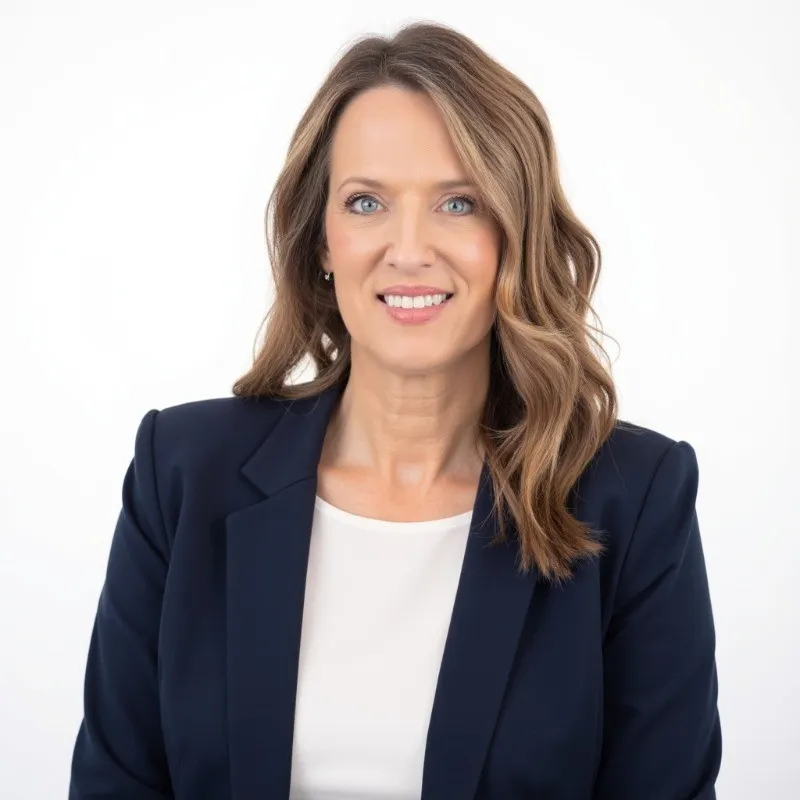Not many can trace their career path back to kindergarten. But Erin Sawyer can. She knew she wanted to be an accountant at just five years old.
Never straying from that goal, Sawyer got an accounting degree before working for four years in that profession. When she wanted to expand beyond recording the numbers to understanding how those figures contributed to the company’s direction, Sawyer got an MBA and pivoted to a finance career.
At the former R.H. Donnelley (now Dex One), Sawyer moved from compliance accountant to FP&A senior manager and analyst. Another pivotal move came when she next began incorporating operations into her work as LexisNexis’ director of finance and operations.
Sawyer then served as Vertafore’s vice president of finance business operations before being named deputy CFO. After almost five years there, she moved to Emburse, then became CFO at Wowza. Sawyer joined Certinia, which provides cloud software solutions to services businesses, as CFO and acting chief information officer two years ago.

Erin Sawyer
CFO and CIO, Certinia
First CFO position: 2022
Notable previous employers:
- Wowza
- Emburse
- Vertafore
- LexisNexis
- Dex One (formerly R.H. Donnelley)
This interview has been edited for brevity and clarity.
SANDRA BECKWITH: Before joining Certinia, you were at Wowza for just 1.5 years and Emburse for less than a year, which isn’t your earlier pattern. How did this approach help prepare you for your current role at Certinia?
ERIN SAWYER: I was looking to become a CFO, and getting that first CFO role was more difficult than I expected. When I joined Emburse as senior vice president of financial planning and analysis, I knew I could make a significant contribution by standardizing data and setting up systems while building important investor relationships that could help bring me closer to a CFO opportunity.
I left Emburse to accept my first CFO position at Wowza. It was hard to leave Wowza after a year and a half because I loved the company, the team and our investors, but it was the right next step for me as I continued to grow.
What made you the right person at the right time for the CFO position at Certinia?
I had evaluated and implemented Certinia in the past, so I knew the product. It would be the first time in my career that I used what we sell, and I thought that would make the job even more interesting.
I also brought the operational rigor the company needed at that point in its growth. In any role, I always ask, how do we drive efficiency? How do we drive productivity? And how do we drive growth? Certinia needed the systems, data, processes and metrics for all of that.
You’re now also the CIO. Why?
I love systems. And I see that systems-process-data-enterprise application sitting in the CFO role a lot more, especially in companies of our size. It’s about how we work as a company versus just the financial side of it.
Thanks to prior experience, I’m responsible for our information security, internal IT and enterprise applications. It’s all our infrastructure enterprise systems, from go-to-market to people.
Looking back on your entire career, what do you think was the most pivotal moment?
Before I joined Vertafore in the second half of my career, I had been in the strategic partner space, but never owned enterprise applications. Vertafore provided that pivotal moment where I was not only the adviser, but I owned our infrastructure from an operating systems perspective, too.
That was the last layer for me. I owned the systems for how we work, not just what we use in finance, across the entire organization. It took me beyond the finance team.
Was becoming CFO a career goal? If so, how did it influence how you approached your career? If not, when did you decide to shift to the CFO track?
In the early stages of my career, CFO seemed like such a big, big role, even though I always had the drive to work hard and move up the career path. As I got more exposure to the role in the past 10 to 12 years, though, I began to think, “I can do that.”
I just needed to add a couple of more layers or experiences to my skillset. I knew I could do that.
What advice would you give to others in finance hoping to become CFOs?
Look beyond what you’re doing today. Learn and understand the business, where it’s going and how all those things tie together.
If you are in accounting, get to know jobs in the finance sphere. Understand what the FP&A team is doing and how they partner with the business to help drive financial decisions. Look beyond recording the numbers to how the company uses the numbers to drive strategic decisions.
If you’re on the FP&A side, learn about the accounting and operating pieces so you understand how the numbers got there.





